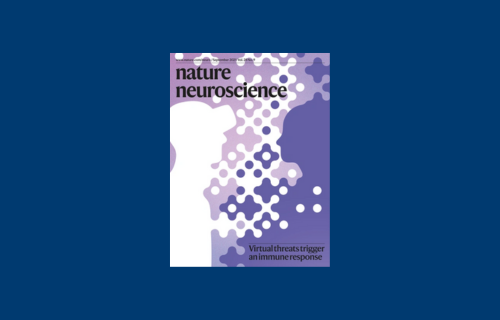New research in Nature Neuroscience has implications for Post-Traumatic Stress Disorder (PTSD)
Friday, 19 September, 2025
Share

Dr Jeffrey Glennon, Assistant Professor in Physiology at UCD School of Medicine, together with collaborators in Germany, U.S.A. and the Netherlands, has published a high-impact nature neuroscience paper with implications for Post-Traumatic Stress Disorder (PTSD).
The team showed that noradrenergic activation of the basolateral amygdala promotes the formation of discrete memories of similar events that were experienced close in time via a microRNA-134 mediated consolidation process with the dentate gurus. Crucially, microRNA-134 as a molecular on/off switch in the hippocampus, determining if emotional memories experienced close in time get consolidated together as single memories and do not use this hippocampal microRNA-134 mechanism.
Altering hippocampal microRNA-134 may be a way to interfere with the consolidation of emotional memories experienced close in time which may be relevant to those with PTSD.
Abstract
Noradrenergic activation of the basolateral amygdala (BLA) promotes strong and lasting memories of emotionally arousing experiences. However, in our lives, we often encounter similar events that may be confused and result in emotional strengthening of incorrect associations. Here we provide evidence, in rats, that noradrenergic activation of the BLA promotes the formation of discrete memories of similar events that were experienced close in time, via a miR-134-regulated consolidation process within the dentate gyrus of the hippocampus. Targeted downregulation of miR-134 in the hippocampus was sufficient to induce memory specificity, without affecting the strength of the memory. Notably, noradrenergic activation of the BLA did not recruit this hippocampal miR-134-mediated mechanism in enhancing memory of a single event. These findings indicate that the BLA engages a qualitatively different neural mechanism on an ‘as-needed’ basis to facilitate the separation of similar memory representations, enabling the selective strengthening of correct associations into long-term memory.
Access online (opens in a new window)here.